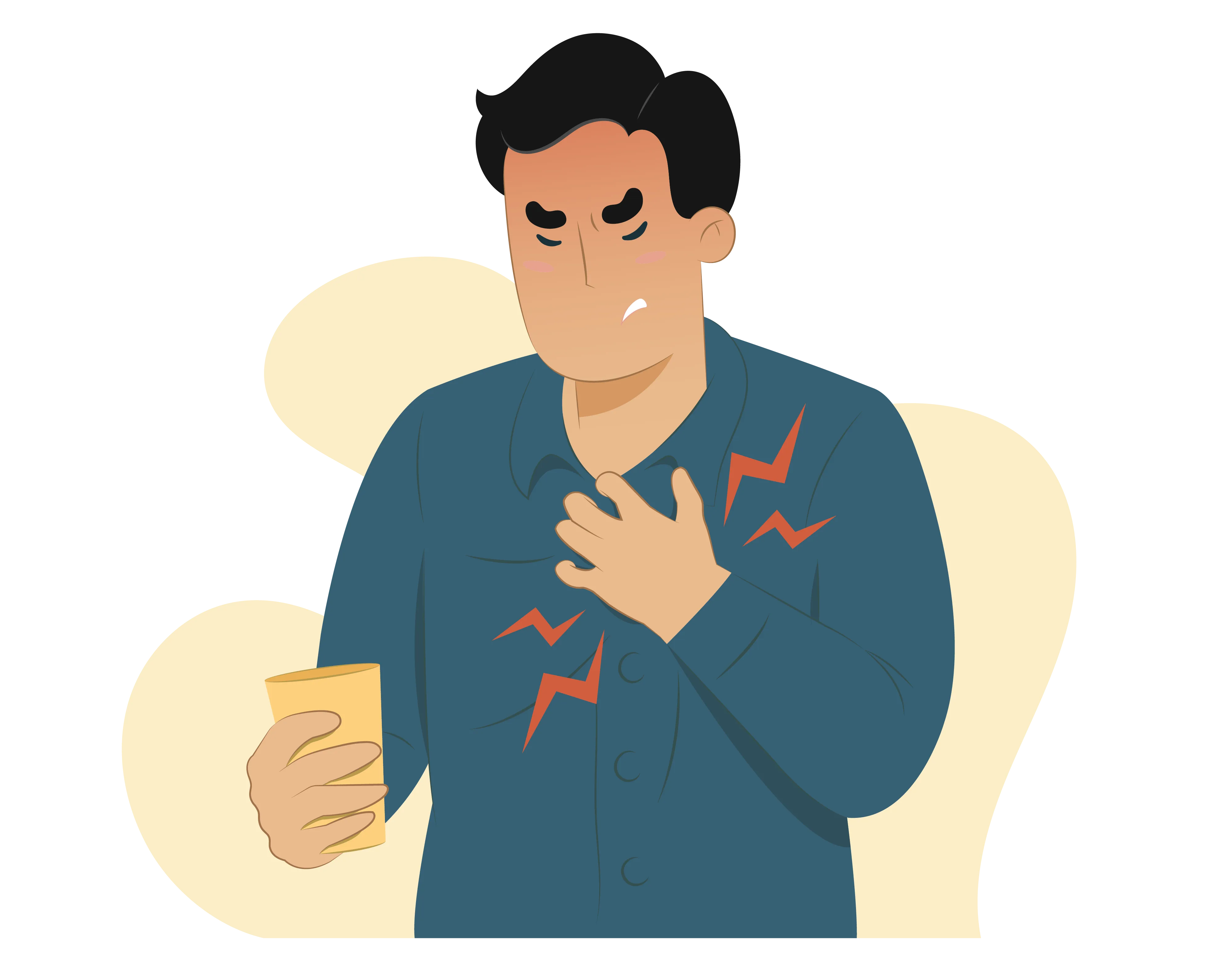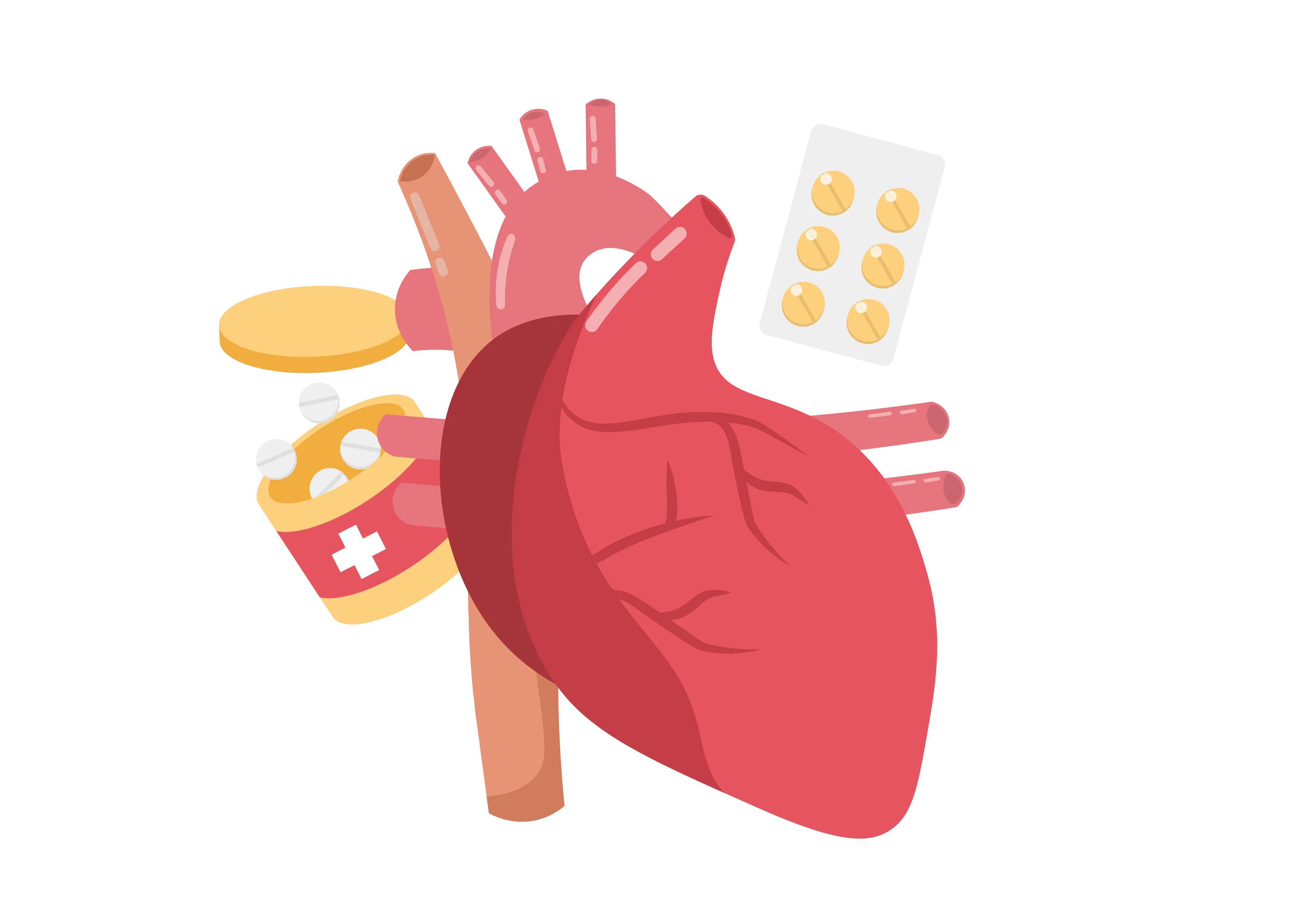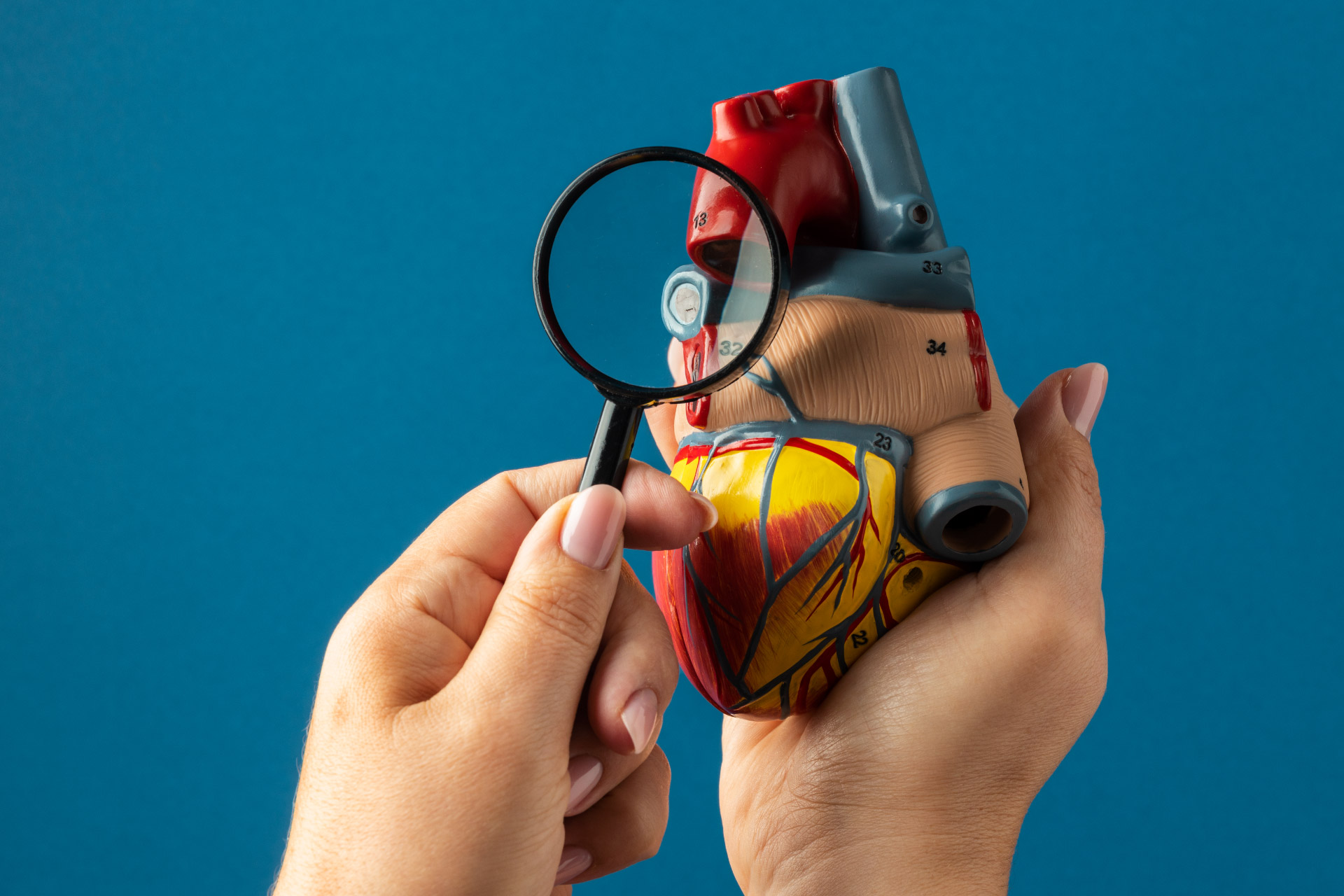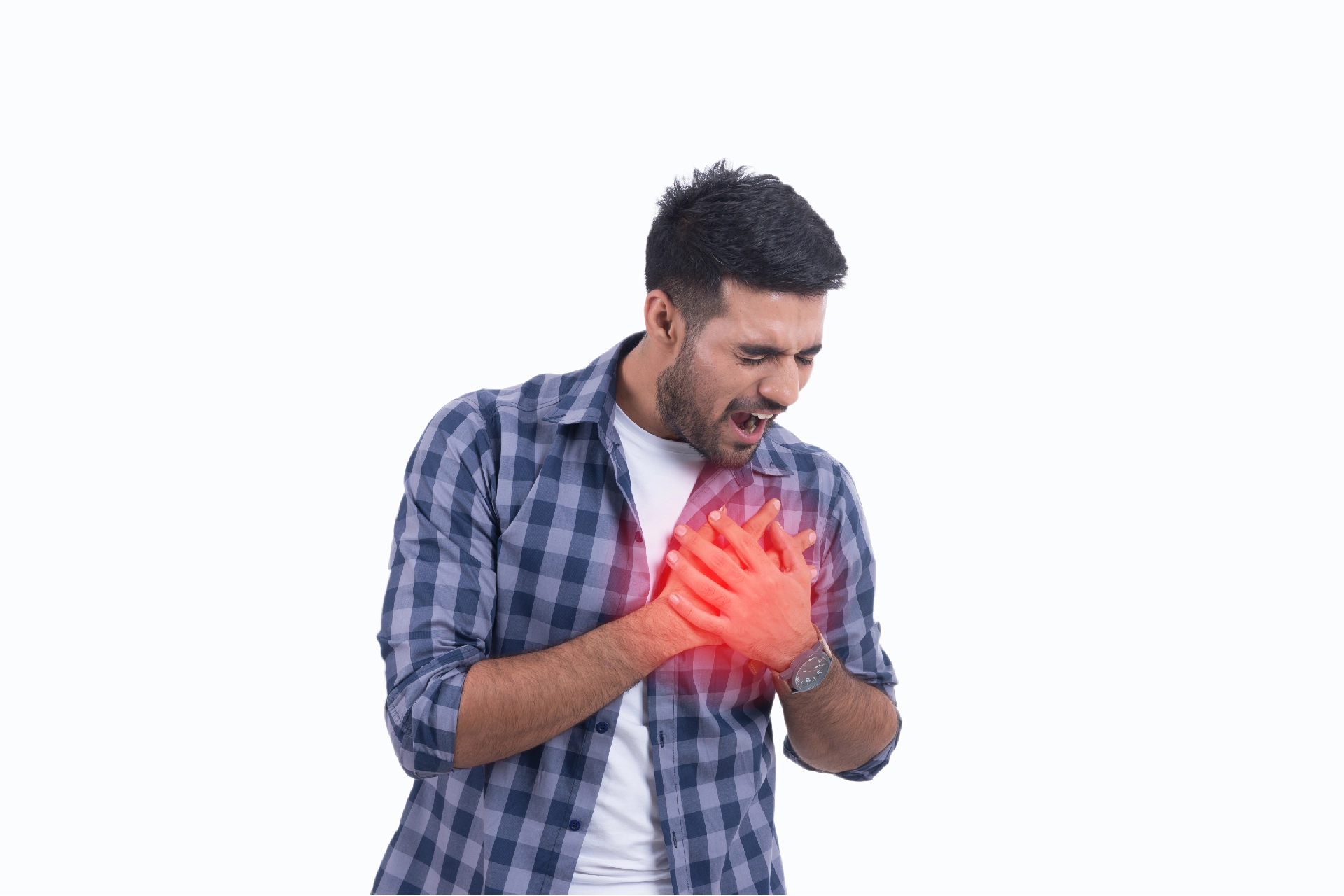Heart Health | 5 min read
Heart Attack Symptoms: How to Know if you are Having a Heart Attack
Medically reviewed by
Table of Content
Key Takeaways
- Recurrent chest pain is the foremost sign of a heart attack
- Profuse sweating and breathlessness are other signs of having a heart attack
- Follow simple heart health tips to protect yourself from heart ailments
A heart attack occurs when blood flow to the heart is blocked. Also known as a myocardial infarction, this condition is caused due to the formation of fatty substances in the coronary arteries. When blood supply is cut off, the heart fails to receive oxygen as a result of which heart muscles stop functioning.
Heart attack symptoms vary from one individual to another with some facing mild chest pain and others experiencing severe pain. However, few people may even be asymptomatic, which could be dangerous. One of the main causes of heart attack is CAD or coronary artery disease although there may be other reasons at play like spasms. Here is a brief overview of this condition and a few important heart health tips.

What are the signs of having a heart attack?
The most important warning sign of a heart attack is a recurrent chest pain or discomfort. Though the discomfort occurs on the left side or center of the chest, it may last only few minutes but keeps occurring at small intervals. During this period, you may feel pressure, fullness or squeezing that makes you feel uncomfortable. [1,2]
Other signs of a heart attack include the following,
- Pain in either both arms or one arm and shoulders
- Weakness in the form of feeling dizzy or faint
- Discomfort on the back, neck or jaw
- Falling short of breath
- Fatigue
- Heartburn
- Nausea
How do heart attacks feel?
It is common for people to wonder how do I know if I had a heart attack? This is because in many cases, a person may feel only shortness of breath without any heart pain. This is called a silent heart attack and is seen most commonly in seniors or diabetics.
Having a heart attack usually feels like a sudden intense pain in the heart or something really heavy seated on the chest. Though a squeezing pain is indicative of a heart attack, many people may experience other subtle symptoms as well. It is quite natural for heart attacks to feel like acid reflux or heartburn. Elderly patients may also experience fatigue, which may be confused with flu symptoms. Apart from the above-mentioned warning signs, another symptom is profuse sweating and nausea. This is more common in women. [3]

What to do if having a heart attack?
Subtle symptoms like heartburn and breathlessness may not be always indicative of heart attacks. However, if such symptoms persist for more than 5 or 10 minutes, call 102 immediately for free ambulance services and emergency medical help. Also, if you feel shortness of breath while at rest or sweat liberally, it is ideal to get medical help. It is also important to do so when you have a family history of heart ailments, have ovarian dysfunction, smoke, or are diabetic. However, doctors recommend that you don’t drive to a medical facility yourself as this can increase chances of arrhythmia.
Another option while you wait for help is to chew and swallow an aspirin. Chewing aspirin may reduce heart damage as aspirin can prevent the blood from clotting. However, you may need to consult a doctor as a precautionary measure to check if you are allergic to aspirin. You can also take nitroglycerin if it is previously prescribed by your cardiologist. These measures are only to be considered while you wait for medical help.
In case a person you know is having a heart attack and falls unconscious, start CPR. Doing CPR helps continue blood flow in the body until you get some help.

Prevent heart attacks by following these heart health tips
Follow these simple tips and ensure you stay in the pink of health,
- Don’t miss out on regular check-ups especially if you’re at risk of cardiovascular diseases
- Try to achieve a healthy weight by eating a well-balanced diet
- Stay physically active by going for a brisk walk every day for at least 30 minutes
- Quit habits like smoking and drink in moderation
- Manage stress by practicing meditation, doing exercise and other activities
- Ensure that your blood pressure and cholesterol levels are well under control
- Get a good night’s sleep of at least 7 hours a night
Prevent heart attacks with healthy lifestyle changes. However, there are post-heart attack complications you need to know of. Arrhythmia or leakage in the valve is possible. Neglecting heart health can cause sudden cardiac arrest or even heart failure. Whether you are at risk for heart disease or want to assess your heart health, book an online doctor consultation with a cardiologist on Bajaj Finserv Health. Take a proactive approach for you and your family and stay safe from heart ailments.
References
- https://www.cdc.gov/heartdisease/heart_attack.htm
- https://www.heart.org/en/health-topics/heart-attack/warning-signs-of-a-heart-attack
- https://health.clevelandclinic.org/what-does-a-heart-attack-really-feel-like/
Disclaimer
Please note that this article is solely meant for informational purposes and Bajaj Finserv Health Limited (“BFHL”) does not shoulder any responsibility of the views/advice/information expressed/given by the writer/reviewer/originator. This article should not be considered as a substitute for any medical advice, diagnosis or treatment. Always consult with your trusted physician/qualified healthcare professional to evaluate your medical condition. The above article has been reviewed by a qualified doctor and BFHL is not responsible for any damages for any information or services provided by any third party.





